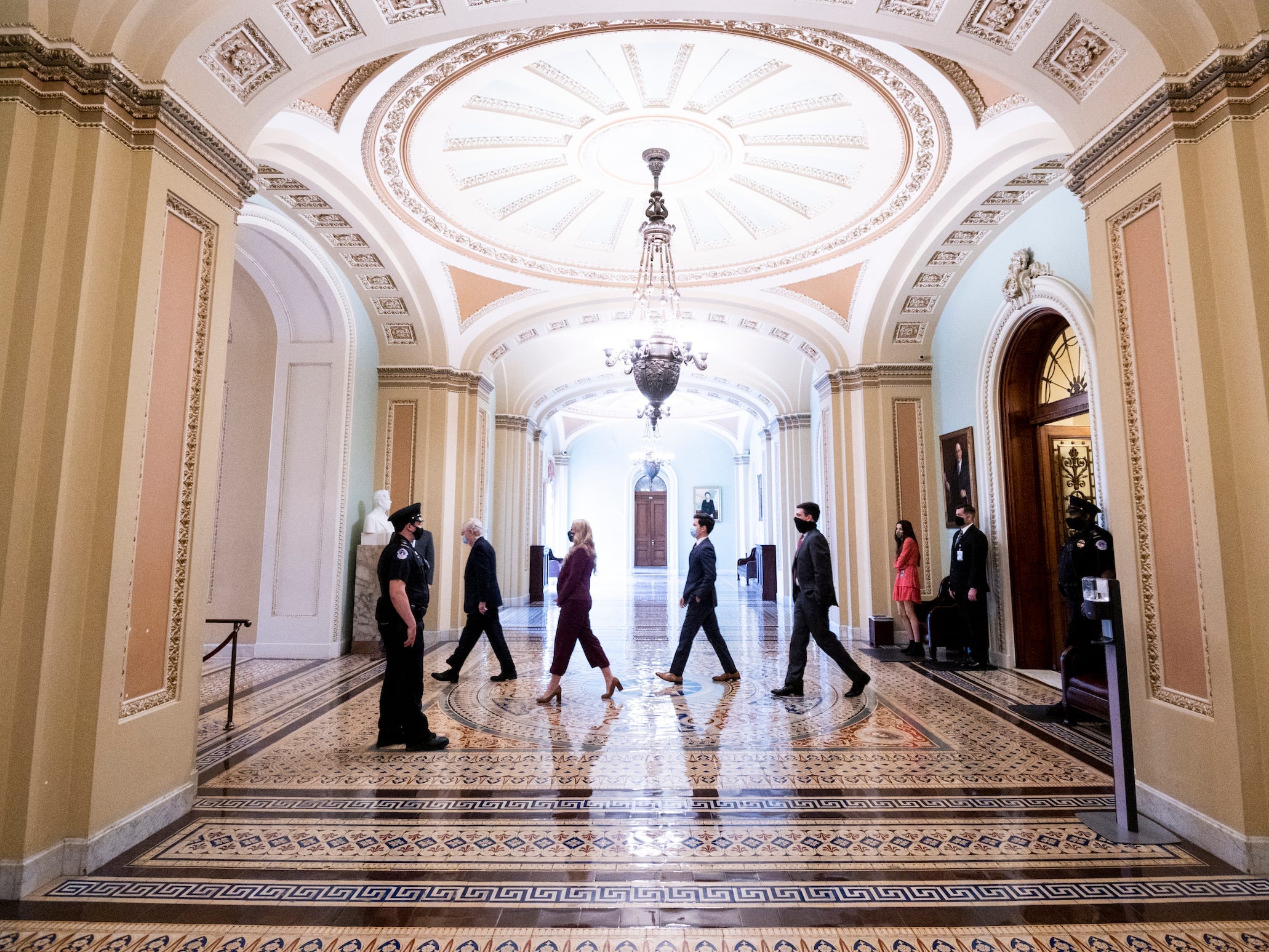Hello!
Welcome to this weekly roundup of stories from Insider's Business co-Editor in Chief Matt Turner. Subscribe here to get this newsletter in your inbox every Sunday.
What we're going over today:
- How "Tiger Mom" Amy Chua became the pariah of Yale Law.
- 50 founders and VCs dish on what it's like to work with Jason Calacanis, Silicon Valley's most polarizing investor.
- Gen Xers, in the middle of middle-age, are embracing the status quo.
- Capitol Hill staffers vent about unlivable pay and how they survive in one of the nation's most expensive cities.

What's trending this morning:
- Oracle's cloud unit is modeling itself after Amazon: Leaked documents show that its corporate values are inspired by Amazon's.
- The 12 fastest-growing direct-to-consumer food brands: From chocolate bars to water sourced from the alps, these are the up-and-coming brands to keep an eye on.
- Meet the man who left his hedge fund behind to start his own healthy snacks company: Jason Karp explains his drastic mid-career switch.
- Target is recovering from a sweeping back-end system failure: It impacted everything from payroll software to call centers, just 2 years after its cash registers crashed around the globe.
- Office-reopenings could fuel changes in transportation and energy consumption: But it's too early to gauge the full impact. For more on the culture and business of sustainability, sign up for our free biweekly Insider Sustainability newsletter here.
How 'Tiger Mom' Amy Chua became the pariah of Yale Law
Amy Chua is best known for 2011's "Battle Hymn of the Tiger Mother," a memoir about her childhood as the daughter of Chinese immigrants and her experience raising her own daughters. But she's also known as Yale Law's "pariah," for a number of reasons:
This April, the Yale Daily News reported that Chua would be stripped of teaching a small class to first years after students came forward to the administration alleging that Chua was hosting dinner parties with alcohol for law students and "prominent members of the legal community" at her home.
Some students considered the debacle to be a result of a professor who had pushed the limits at Yale for years. Others saw it as an attempt to cancel a popular teacher because she supported her husband, Jed Rubenfeld and Brett Kavanaugh amid allegations of the men's sexual misconduct.
Almost all sides saw it as the inevitable eruption of a long-simmering tension between the most elite law school in America and its most famous professor.
Get the full rundown of her fall from grace:
Also read:
- Mega law firm Dentons wants to build a top-flight consulting business, and it just signed a deal to launch a new standalone firm
- A woman is suing former Apollo CEO Leon Black, saying he raped her, spent $1 million to keep her quiet, and falsely accused her of extortion
Inside the world of angel investor Jason Calacanis

What is it really like for young aspiring entrepreneurs heeding Jason Calacanis' call to change the world? To find out, we spoke with more than 50 people close to him, including portfolio-company founders, accelerator alumni, and current and former colleagues:
Crackling with energy and attitude, Calacanis is an unmistakable presence in Silicon Valley. The squat, Brooklyn-raised investor is often the loudest voice in the room, whether he's preaching his philosophy for success ("do the work") on one of his podcasts or expounding on opportunities to build the next Uber (he was one of its first outside investors in 2009).
For many young entrepreneurs with dreams of launching a startup and making it big in Silicon Valley, Calacanis is the first stop on the journey. A former tech-industry publisher, Calacanis has emerged as one the most sought-after suppliers of "seed funding," the small sums of money that early stage startups raise to see whether their ideas have legs.
The money isn't the main draw, though. Mixing showmanship, bravado and an assortment of media megaphones, Calacanis has built a one-man brand that touts the glory of tech startups with infomercial-like zeal - and casts him as the astute coach, talent agent, promoter, and gatekeeper to achieving success in the game.
Learn more about the polarizing investor:
Also read:
- 2 veteran VCs are betting on the rise of the solo capitalist. They explain how their fund backs the booming trend with investors like Anthony Pompliano and Cindy Bi - and share tips for breaking into VC.
- How a 24-year-old raised $6 million from VCs like Ashton Kutcher for a singing-selfie app after 200 investors said no
Gen Xers are settling into the status quo

As vaccination rates rise and the pandemic fades in the US, certain generations are soul-searching - but many in Generation X are instead opting for the status quo:
Consider, for instance, the millennials, some of whom are embracing what The New York Times calls the YOLO economy - a happy-sounding acronym for "you only live once." They're quitting stable, high-paying jobs to travel, write screenplays, and take advantage of the freedom and flexibility of remote work by moving to exotic locales.
In that same vein are the baby boomers - millions of whom are exiting the workforce years earlier than planned because of COVID-19. Fortified by fat 401(k) accounts and appreciated home values, they're, according to Bloomberg, in a "rush to retire in a new life-is-short mindset."
Generation X didn't get the memo.
Why Gen X isn't making dramatic life changes:
Also read:
- 7 couples confess how WFH changed their romantic relationships, how they handled unexpected tensions, and what happens now
- Age gaps in relationships are facing increased scrutiny even when between consenting adults
Capitol Hill staffers vent about unlivable wages

Hill staffers have put up with low wages for years, with some starting in the high $20,000s. We spoke with 14 current and former staffers, who discussed how low pay affected their lives:
Several days a week, a Capitol Hill intern would rise before dawn to take the bus not to her congressional members' office but to a Starbucks, where she worked 5:30 a.m. shifts before heading east to start her unpaid full-time internship.
On other days, she left the hallowed halls of Congress at dusk, exhausted, only to work several more hours as a barista giving other Washingtonians their energy fix.
She ultimately survived the internship and landed a full-time job working for a member of Congress - but the starting pay of $32,000 still wasn't enough to cover her financial obligations.
Read more from our exclusive report:
Also read:
Plus, an invitation: Join us Tuesday, June 15 at 12 p.m. ET for a free virtual event on translating the HR digital revolution to everyday work, presented by Paycom. Register here.
Here are some headlines you might have missed last week.
- Matt
- People are buying up any Florida properties they can get their hands on right now. Here's why one real-estate investor is doing the exact opposite.
- Newly revealed CloudKitchen documents show how Travis Kalanick's company is pivoting as new rivals enter the crowded ghost kitchen space
- A YouTuber filmed her partner threatening to beat her son. YouTube let her repost the footage after it removed the video.
- Inside the largest virtual crypto gathering this year: Ark Invest CEO Cathie Wood and NFL legend Tom Brady break down why they are doubling down on crypto despite the recent volatility - and share the opportunities on their radar
- Investors think mind-bending drug DMT could rival psilocybin as a cost-effective psychedelic treatment for conditions like depression. 3 VCs explain why its fast-acting properties are appealing.
- Bank of America says these 4 tech stocks are poised to soar as global economies reopen - including 2 that will become market leaders in the race to solve the semiconductor chip shortage
- Amazon loses another high-profile executive who was hired to lead its cloud apps and open source efforts just 2 years ago
- Goldman Sachs just crowned the logistics industry's newest unicorn. Here's how project44 is helping customers like Amazon and Dollar General wrangle supply chain chaos.
